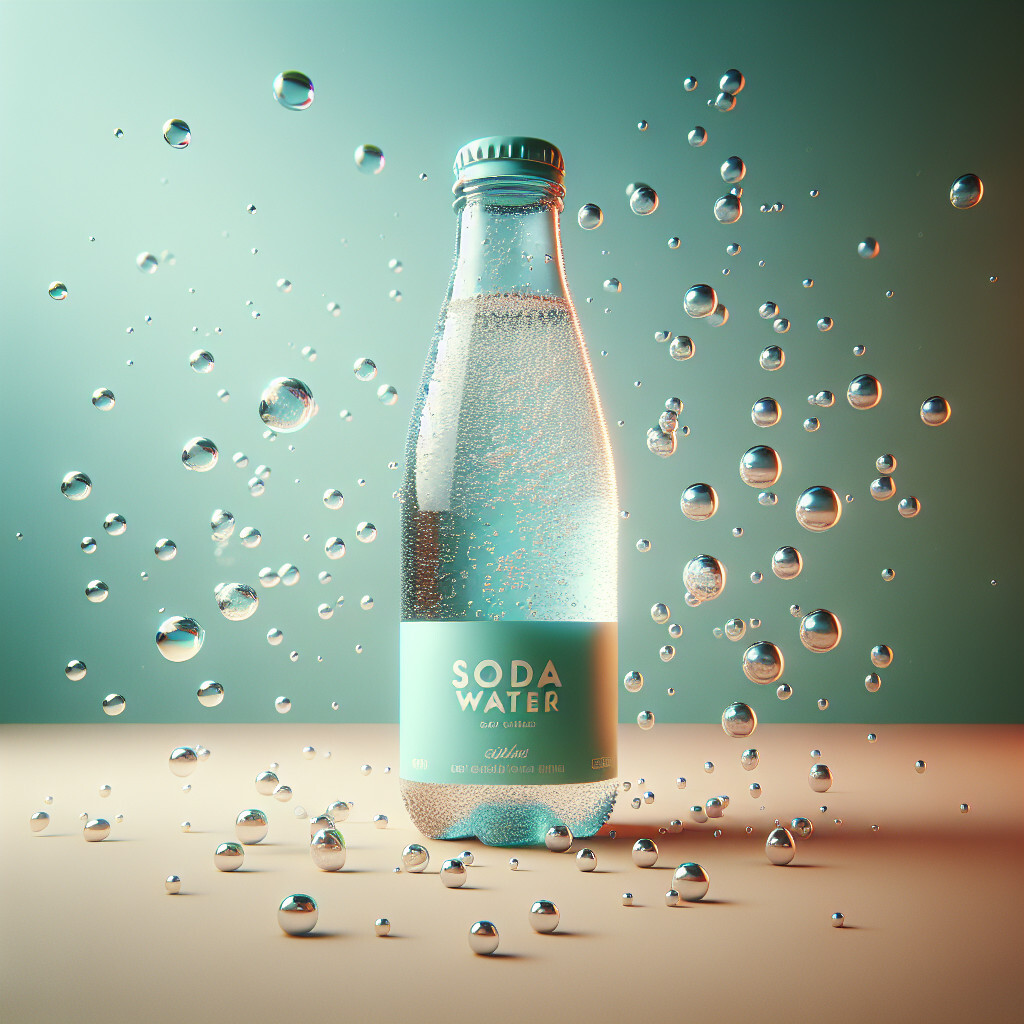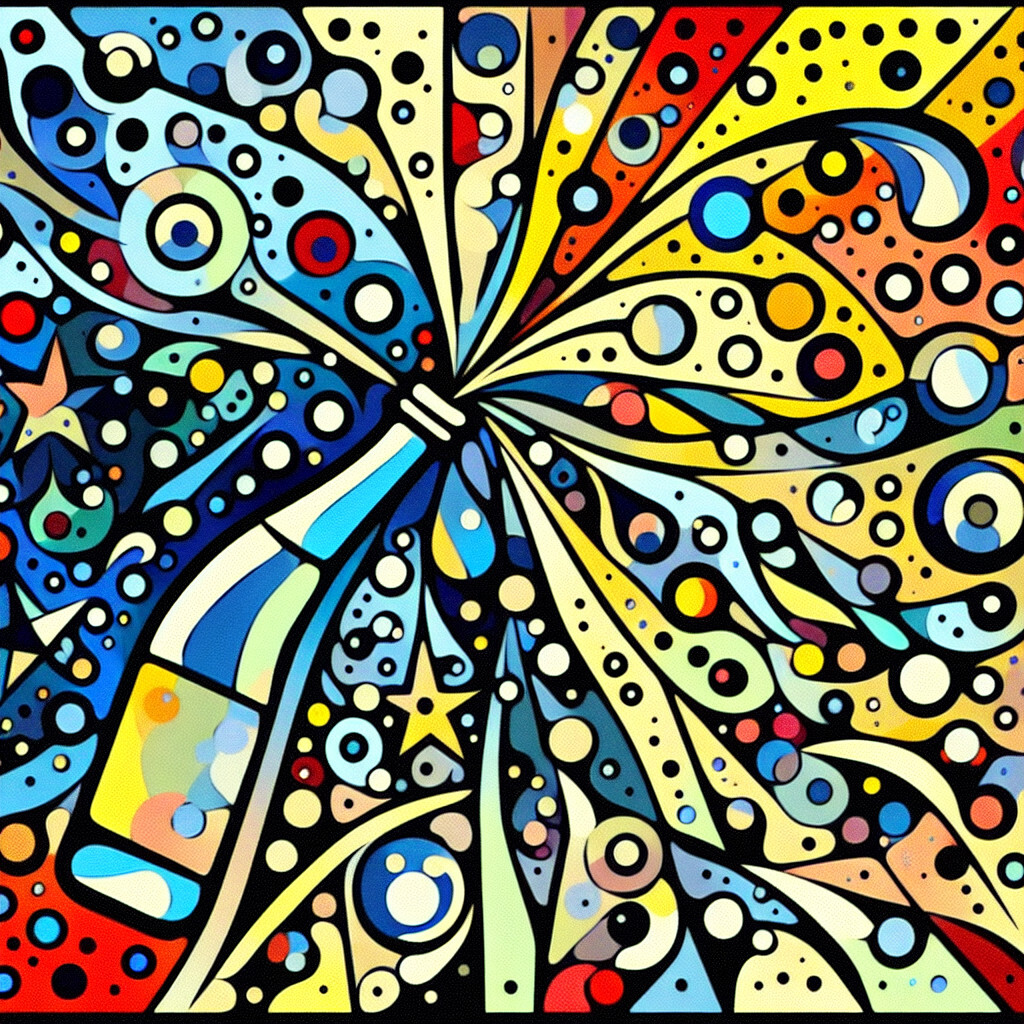-
Table of Contents
“Pure Bubbles of Joy for Your Little One!”
Introduction

Soda water, also known as carbonated water, is a beverage that contains dissolved carbon dioxide gas. While it is generally safe for adults, it is not recommended for babies. The carbonation can cause discomfort and bloating in babies due to their immature digestive systems. Additionally, soda water does not provide any nutritional benefits for a baby’s growth and development. Therefore, it is best to stick to breast milk, formula, and small amounts of plain water when necessary for babies.
Understanding the Effects of Soda Water on Baby’s Health
Soda water, also known as carbonated water, is a popular beverage choice for many adults due to its refreshing taste and fizzy sensation. However, when it comes to the health and well-being of infants, it is crucial to understand the potential effects of soda water on a baby’s health.
Soda water is essentially water into which carbon dioxide gas has been dissolved under pressure. This process, known as carbonation, gives the water its characteristic bubbles and tangy taste. While this may seem harmless, it is important to consider the potential impact of this beverage on the delicate digestive system of a baby.
Firstly, the carbonation in soda water can lead to the build-up of gas in a baby’s stomach. This can cause discomfort, bloating, and even colic in some cases. Babies have immature digestive systems that are still developing, making them more susceptible to the effects of gas. The bubbles in soda water can exacerbate this issue, leading to unnecessary discomfort for the baby.
Secondly, the acidity of soda water can potentially harm a baby’s health. Carbonated water has a lower pH than regular water, making it more acidic. This acidity can irritate a baby’s sensitive stomach lining and potentially disrupt the balance of their gut flora. Moreover, frequent exposure to acidic beverages can harm the enamel of baby teeth, leading to dental issues later in life.
Furthermore, while soda water itself does not contain sugar or calories, it is often consumed in forms that do, such as in flavored or sweetened carbonated beverages. These can contribute to unhealthy weight gain and tooth decay in babies. Even if the soda water is unsweetened, the carbonation can stimulate a baby’s appetite, potentially leading to overeating and weight issues.
It is also worth noting that soda water can potentially displace healthier beverage choices. Babies need a lot of hydration, and the best source for this is breast milk or formula for those under one year, and plain water for older babies. If a baby fills up on soda water, they may not consume enough of these other essential beverages.
In conclusion, while soda water is not inherently harmful, it can potentially cause a range of issues in babies, from digestive discomfort to dental problems. Therefore, it is advisable to avoid giving soda water to babies. Instead, focus on providing them with breast milk or formula, and eventually plain water, to ensure they receive the hydration and nutrients they need for healthy growth and development.
However, it is always important to consult with a healthcare professional or pediatrician before introducing any new food or beverage to a baby’s diet. They can provide personalized advice based on the baby’s age, health status, and nutritional needs. This will ensure that the baby’s diet supports their growth and development in the best possible way.
In essence, while soda water may be a refreshing beverage for adults, it is not the best choice for babies. By understanding the potential effects of soda water on a baby’s health, parents and caregivers can make informed decisions about what to include in their baby’s diet.
Why Soda Water is Not Recommended for Babies
Soda water, also known as carbonated water, is a popular beverage choice for many adults due to its refreshing taste and the satisfying fizz that accompanies each sip. However, when it comes to infants and young children, the question arises: is soda water safe for babies? The answer, according to pediatricians and nutritionists, is a resounding no. Soda water is not recommended for babies due to several reasons, including its potential to disrupt digestion, contribute to tooth decay, and introduce unnecessary additives into a baby’s diet.
Firstly, the carbonation in soda water can cause digestive discomfort in babies. The bubbles that make soda water so appealing to adults can lead to bloating, gas, and discomfort in a baby’s immature digestive system. Babies have a limited capacity to burp up the excess gas that carbonation can cause, which can lead to discomfort and even pain. Moreover, the high acidity of carbonated beverages can potentially irritate a baby’s sensitive stomach lining, leading to further digestive issues.
Secondly, soda water can contribute to tooth decay. While it’s true that soda water doesn’t contain the high levels of sugar found in regular soft drinks, it is still acidic. The acid in soda water can erode the enamel on a baby’s teeth, making them more susceptible to cavities and decay. This is particularly concerning for babies and toddlers who are still developing their primary teeth.
In addition to these health concerns, soda water often contains additives that are unnecessary and potentially harmful to a baby’s diet. Many brands of soda water add sodium, artificial flavors, or sweeteners to enhance the taste. These additives have no nutritional value and can contribute to an unhealthy diet. Babies need nutrient-dense foods to support their rapid growth and development, and soda water simply does not meet these requirements.
Furthermore, introducing soda water to a baby can establish unhealthy dietary habits that persist into childhood and beyond. Babies who are given soda water may develop a preference for sweet or flavored beverages over plain water or milk, which are healthier choices. This can lead to a higher risk of obesity and other health problems later in life.
In conclusion, while soda water may be a refreshing and enjoyable beverage for adults, it is not suitable for babies. Its potential to cause digestive discomfort, contribute to tooth decay, and introduce unnecessary additives into a baby’s diet make it a poor choice for infant consumption. Instead, experts recommend breast milk or formula for babies under six months of age, and the introduction of small amounts of plain water once solid foods are introduced. These options provide the necessary nutrients for growth and development without the potential risks associated with soda water. Therefore, it is advisable for parents and caregivers to refrain from giving soda water to babies, ensuring their health and well-being now and in the future.
The Impact of Soda Water on Baby’s Digestive System
Soda water, also known as carbonated water, is a popular beverage choice for many adults due to its refreshing taste and the satisfying fizz that accompanies each sip. However, when it comes to infants, the question arises whether soda water is a suitable drink for them. This article aims to shed light on the impact of soda water on a baby’s digestive system.
The digestive system of a baby is delicate and still developing. It is designed to process breast milk or formula, which are rich in nutrients necessary for growth and development. Introducing soda water into this system can potentially disrupt its normal functioning. The primary concern is the carbonation in soda water. Carbonation results from the addition of carbon dioxide under pressure, which creates the characteristic bubbles and fizz. While this may seem harmless, it can lead to discomfort in babies.
One of the most immediate effects of carbonation is the creation of gas in the stomach. This can lead to bloating, burping, and discomfort in adults, and the effect is magnified in babies. Their immature digestive systems are not equipped to handle the excess gas created by carbonation, which can lead to colic, a condition characterized by severe, often fluctuating pain in the abdomen that is caused by the formation or passage of gas. This can result in a very unhappy and uncomfortable baby.
Moreover, soda water is typically devoid of any nutritional value. Unlike breast milk or formula, it does not contain the essential nutrients that a baby needs for healthy growth and development. Therefore, even if a baby does not experience any immediate discomfort from drinking soda water, it could lead to nutritional deficiencies in the long run if it replaces nutrient-rich drinks.
Another concern is the potential for soda water to disrupt the pH balance in a baby’s stomach. The stomach maintains a delicate balance of acidity to aid in digestion. Soda water is typically more acidic than regular water due to the carbonation process. This increased acidity could potentially disrupt the pH balance in a baby’s stomach, leading to digestive issues such as acid reflux or heartburn.
Furthermore, the introduction of soda water at an early age could potentially set the stage for unhealthy dietary habits in the future. Babies develop their taste preferences early in life, and introducing them to carbonated beverages could lead to a preference for these types of drinks as they grow older. This could potentially increase their risk of obesity and other health issues later in life.
In conclusion, while soda water may be a refreshing beverage for adults, it is not a suitable drink for babies. Its carbonation can lead to discomfort and digestive issues, it lacks the necessary nutrients for growth and development, and it could potentially disrupt the pH balance in a baby’s stomach. Additionally, it could set the stage for unhealthy dietary habits in the future. Therefore, it is recommended to stick to breast milk or formula for babies, and introduce other beverages only when they are older and their digestive systems are more developed.
Alternatives to Soda Water for Hydrating Your Baby
Soda water, also known as carbonated water, is a popular beverage choice for many adults due to its refreshing taste and fizzy sensation. However, when it comes to hydrating your baby, soda water may not be the best option. This is primarily due to the fact that soda water contains carbon dioxide, which can lead to gas and bloating in infants. Moreover, the acidity of soda water can potentially harm a baby’s developing teeth and digestive system. Therefore, it is crucial to explore alternatives to soda water for hydrating your baby.
First and foremost, breast milk or formula should be the primary source of hydration for babies under six months of age. These provide not only hydration but also essential nutrients that are vital for a baby’s growth and development. The World Health Organization recommends exclusive breastfeeding for the first six months of life, after which safe and nutritionally adequate complementary foods should be introduced along with continued breastfeeding.
Once your baby reaches six months of age, small amounts of water can be introduced. However, it’s important to note that water should not replace breast milk or formula but should be offered in addition to these. Plain, unflavored water is the best choice as it is free from any additives or sugars that could potentially harm your baby’s health. It’s also recommended to offer water in a sippy cup to help your baby learn to drink from a cup.
As your baby grows and starts eating solid foods, you can also consider offering diluted fruit juice as an alternative to soda water. However, it’s important to ensure that the juice is 100% fruit juice with no added sugars. The American Academy of Pediatrics suggests limiting juice intake to 4 ounces per day for toddlers aged 1-3 years and 6 ounces for children aged 4-6 years. Diluting the juice with water can help to reduce the sugar content and make it a more suitable choice for hydrating your baby.
Another alternative to soda water is herbal teas. Certain herbal teas, such as chamomile or fennel, can be safe for babies and can also help to soothe colic or digestive issues. However, it’s important to consult with a pediatrician before introducing herbal teas to your baby’s diet to ensure they are safe and suitable for your baby’s age and health.
In conclusion, while soda water may be a refreshing beverage for adults, it is not the best choice for hydrating your baby. Instead, opt for alternatives such as breast milk or formula for babies under six months, and plain water, diluted fruit juice, or certain herbal teas for older babies and toddlers. Always remember to consult with a healthcare professional before introducing any new beverages to your baby’s diet to ensure they are safe and suitable for your baby’s age and health. By choosing the right beverages, you can ensure your baby stays hydrated while also supporting their overall health and development.
Q&A
Question 1: Is soda water safe for babies?
Answer: No, soda water is not recommended for babies as it contains carbonation and often added salts, which can be hard on a baby’s immature digestive system.
Question 2: What age can a baby start drinking soda water?
Answer: It’s best to avoid giving soda water to children until they are at least 2 years old, but it’s better to wait until they are older. Even then, it should be given in moderation.
Question 3: Can soda water cause any health issues in babies?
Answer: Yes, soda water can cause gas and bloating in babies. It can also lead to tooth decay if it contains added sugars.
Question 4: What are healthier alternatives to soda water for babies?
Answer: Healthier alternatives to soda water for babies include breast milk or formula for infants, and water and age-appropriate fruit juices for older babies and toddlers.
Conclusion
Giving soda water to babies is not recommended. It contains carbonation and acids that can upset a baby’s sensitive digestive system. It also lacks the necessary nutrients that babies need for healthy growth and development.





